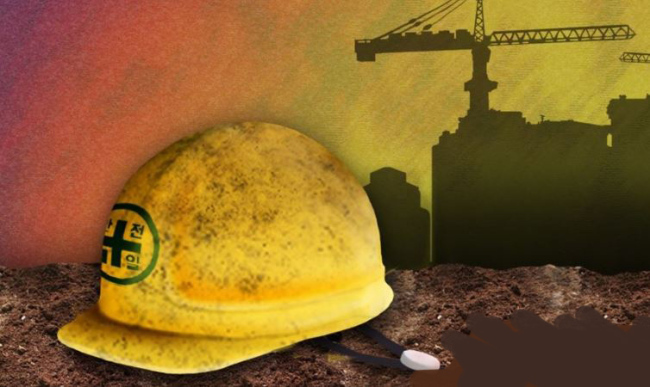Enforcement decree of workplace disaster law to be reviewed by Cabinet this week
By YonhapPublished : Sept. 27, 2021 - 16:56

In January, the National Assembly passed a bill that strengthens the punishment of business owners and CEOs of companies with five or more employees in the event of serious workplace disasters.
Under the new law set to take effect next January, business owners or CEOs could face a minimum one-year prison sentence or up to 1 billion won ($855,000) in fines in the event of deadly on-duty disasters caused by lax workplace safety measures.
The sources said a government proposal of the enforcement decree for the law will be up for deliberation during the Cabinet meeting scheduled for Tuesday. The proposal was passed in a vice-ministerial meeting Friday.
The enforcement decree outlines the responsibilities of company executives as establishing safety and health management policies, presenting protocols for improving hazardous workplace elements, and creating personnel positions and budgets dedicated to addressing safety and health issues at workplaces.
It also stipulates acute poisoning among workers as the sole type of occupational disease subject to the law, but does not include brain-related or cardiovascular-related diseases, which workers' rights groups have pushed to be included.
The ordinance decree has been met with criticism from both management and labor groups.
The Korea Enterprises Federation argued the proposal carries limitations due to its vagueness in terms of stating what is legally required by business executives. The Federation of Korean Trade Unions, meanwhile, said the scope of workplace occupation diseases subject to the law was too narrow and the chances of seeing actual punishment from the law were almost non-existent. (Yonhap)








![[Kim Seong-kon] Democracy and the future of South Korea](http://res.heraldm.com/phpwas/restmb_idxmake.php?idx=644&simg=/content/image/2024/04/16/20240416050802_0.jpg&u=)








![[KH Explains] Hyundai's full hybrid edge to pay off amid slow transition to pure EVs](http://res.heraldm.com/phpwas/restmb_idxmake.php?idx=652&simg=/content/image/2024/04/18/20240418050645_0.jpg&u=20240418181020)

![[Today’s K-pop] Zico drops snippet of collaboration with Jennie](http://res.heraldm.com/phpwas/restmb_idxmake.php?idx=642&simg=/content/image/2024/04/18/20240418050702_0.jpg&u=)